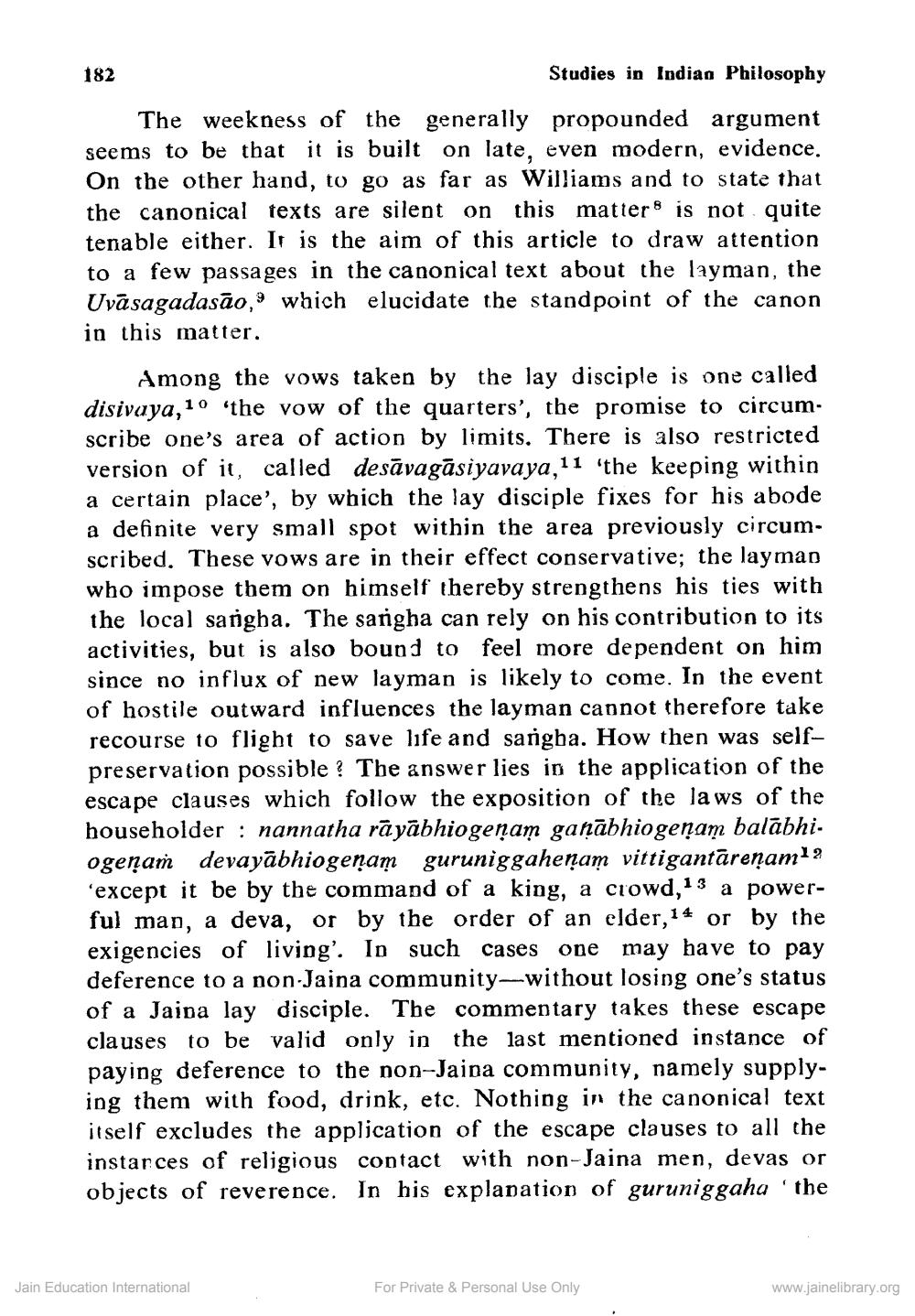________________
Studies in Indian Philosophy The weekness of the generally propounded argument seems to be that it is built on late, even modern, evidence. On the other hand, to go as far as Williams and to state that the canonical texts are silent on this matters is not quite tenable either. It is the aim of this article to draw attention to a few passages in the canonical text about the layman, the Uvasagadasão, which elucidate the standpoint of the canon in this matter.
182
Among the vows taken by the lay disciple is one called disivaya,10 'the vow of the quarters', the promise to circumscribe one's area of action by limits. There is also restricted version of it, called desăvagāsiyavaya,11 'the keeping within a certain place', by which the lay disciple fixes for his abode a definite very small spot within the area previously circumscribed. These vows are in their effect conservative; the layman who impose them on himself thereby strengthens his ties with the local sangha. The sargha can rely on his contribution to its activities, but is also bound to feel more dependent on him since no influx of new layman is likely to come. In the event of hostile outward influences the layman cannot therefore take recourse to flight to save life and sangha. How then was selfpreservation possible? The answer lies in the application of the escape clauses which follow the exposition of the laws of the householder nannatha rāyābhiogeṇam gaṇābhiogeṇam balābhiogeṇam devayabhiogenam guruniggahenam vittigantāreņam1? 'except it be by the command of a king, a crowd,13 a powerful man, a deva, or by the order of an elder, 14 or by the exigencies of living'. In such cases one may have to pay deference to a non-Jaina community-without losing one's status of a Jaina lay disciple. The commentary takes these escape clauses to be valid only in the last mentioned instance of paying deference to the non-Jaina community, namely supplying them with food, drink, etc. Nothing in the canonical text itself excludes the application of the escape clauses to all the instances of religious contact with non-Jaina men, devas or objects of reverence. In his explanation of guruniggaha 'the
Jain Education International
For Private & Personal Use Only
www.jainelibrary.org




